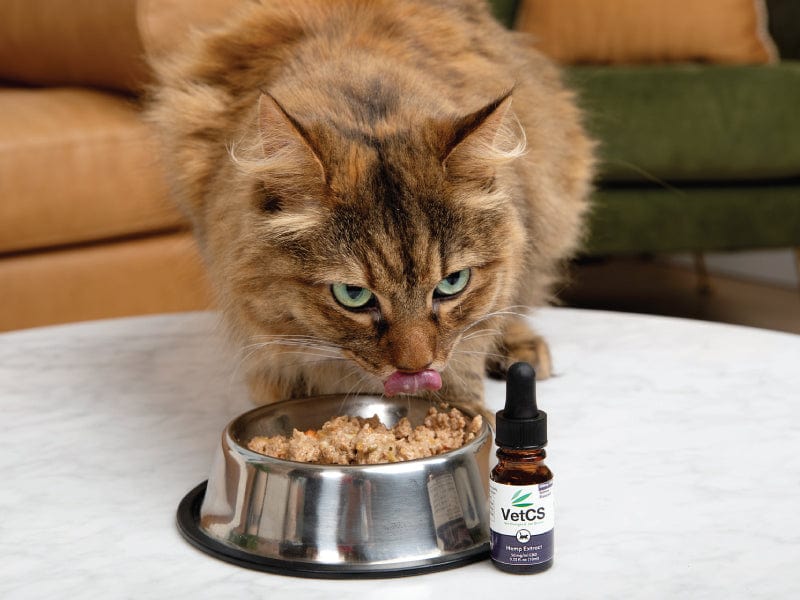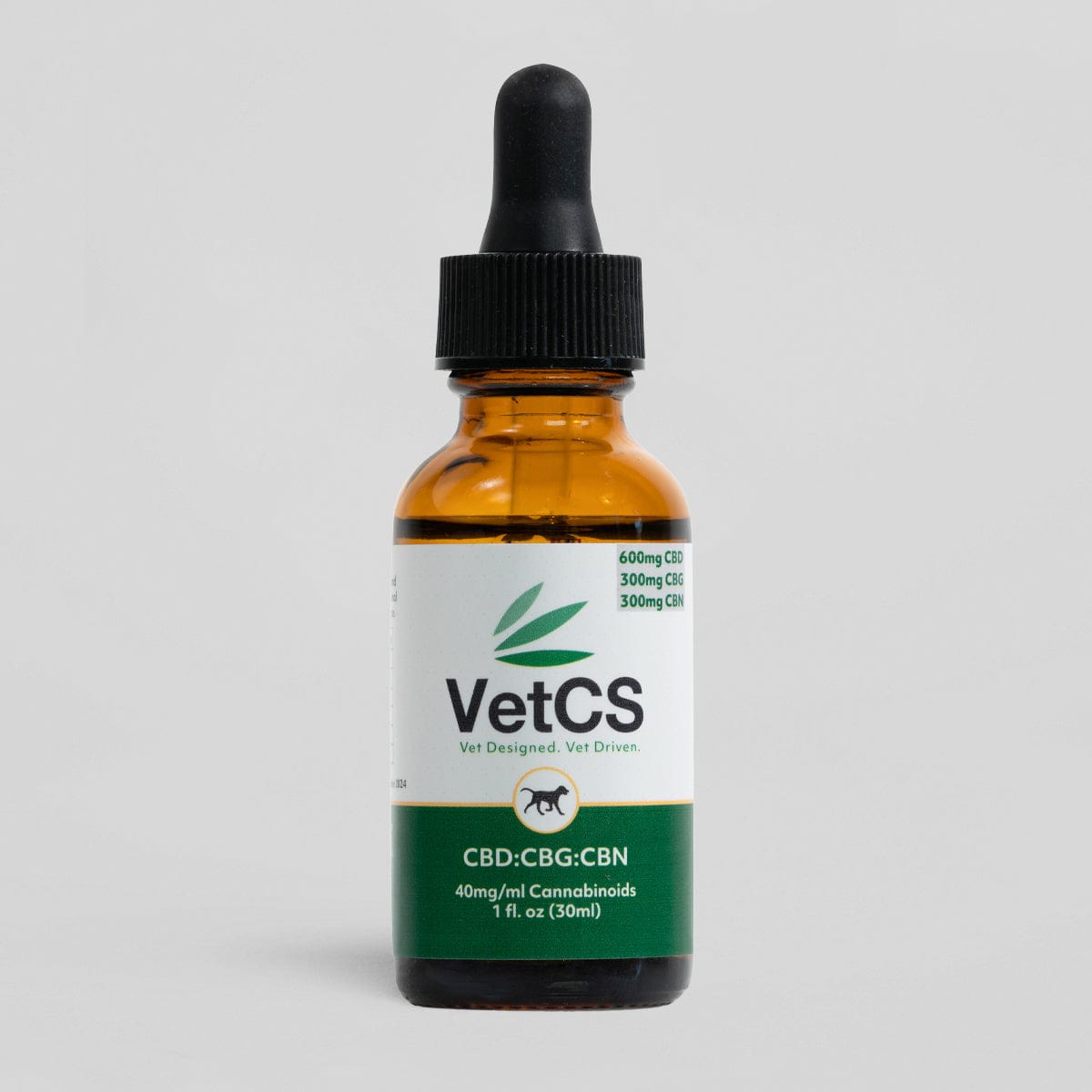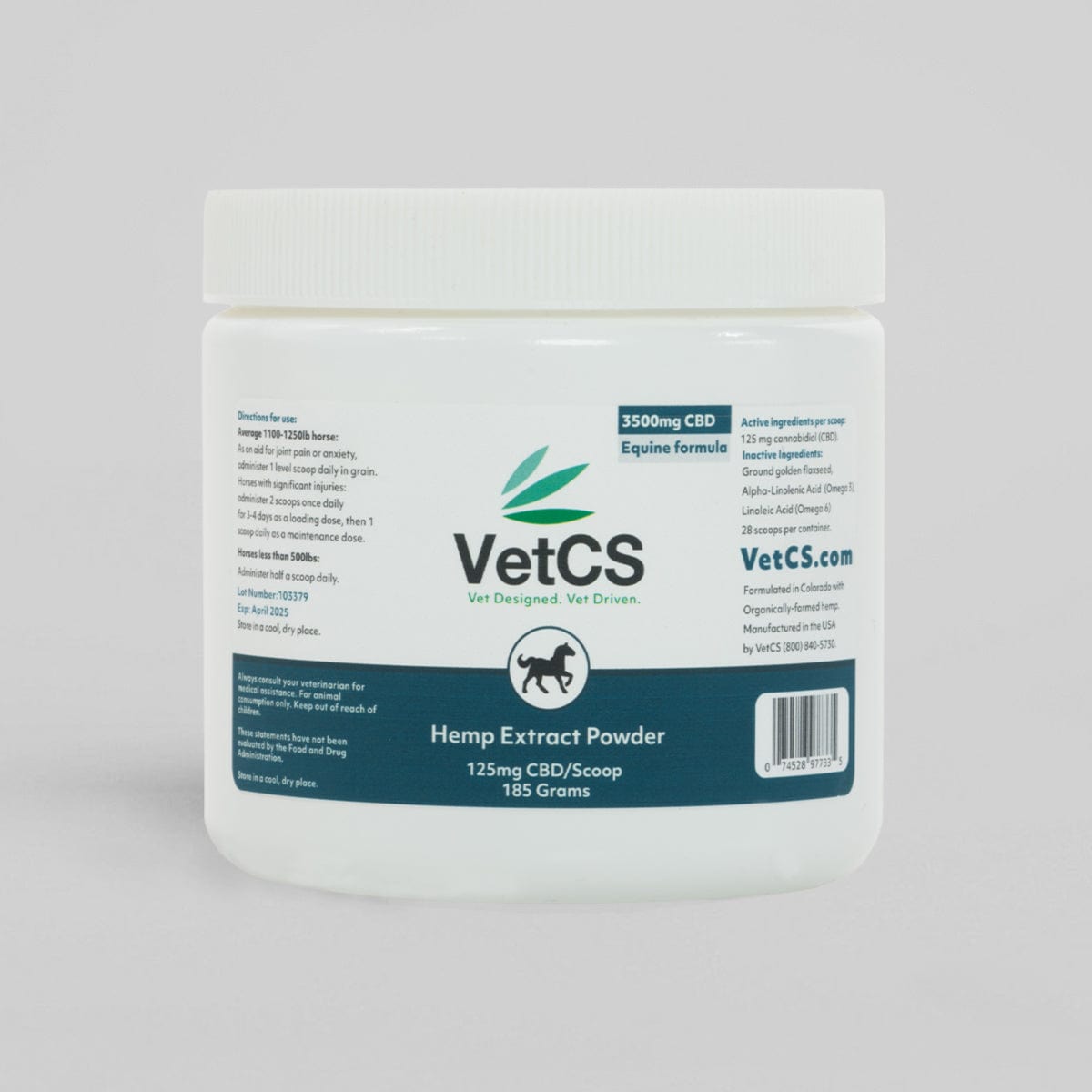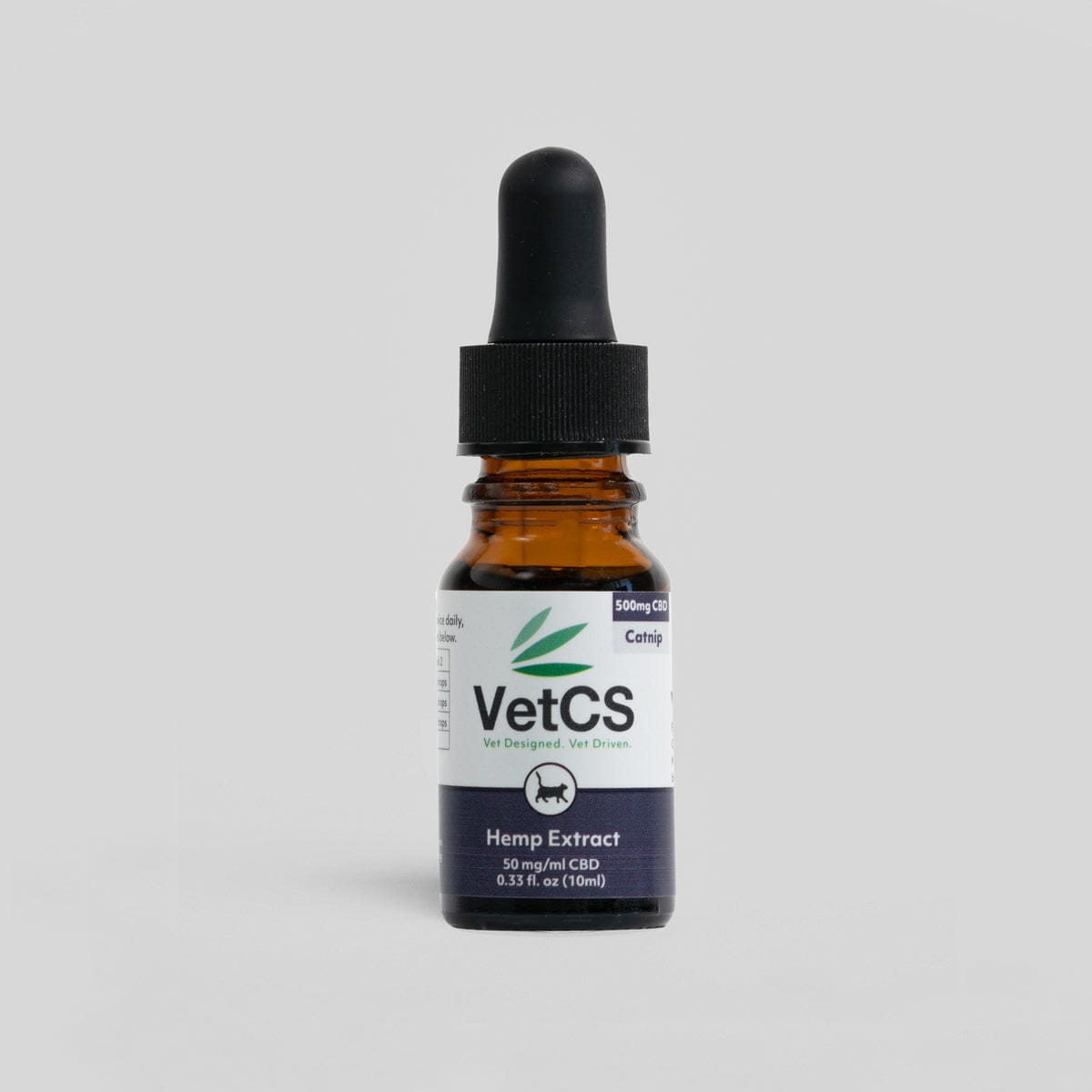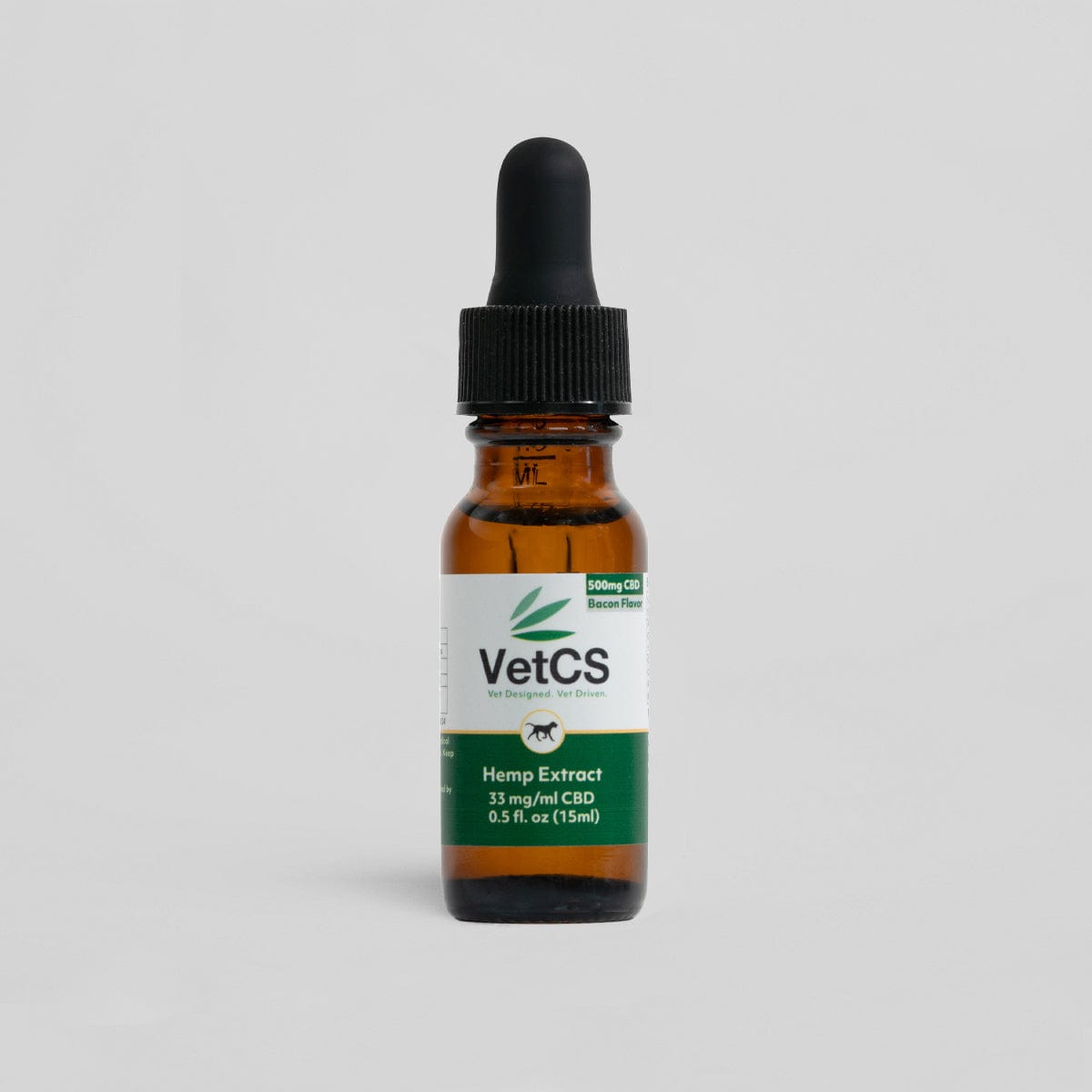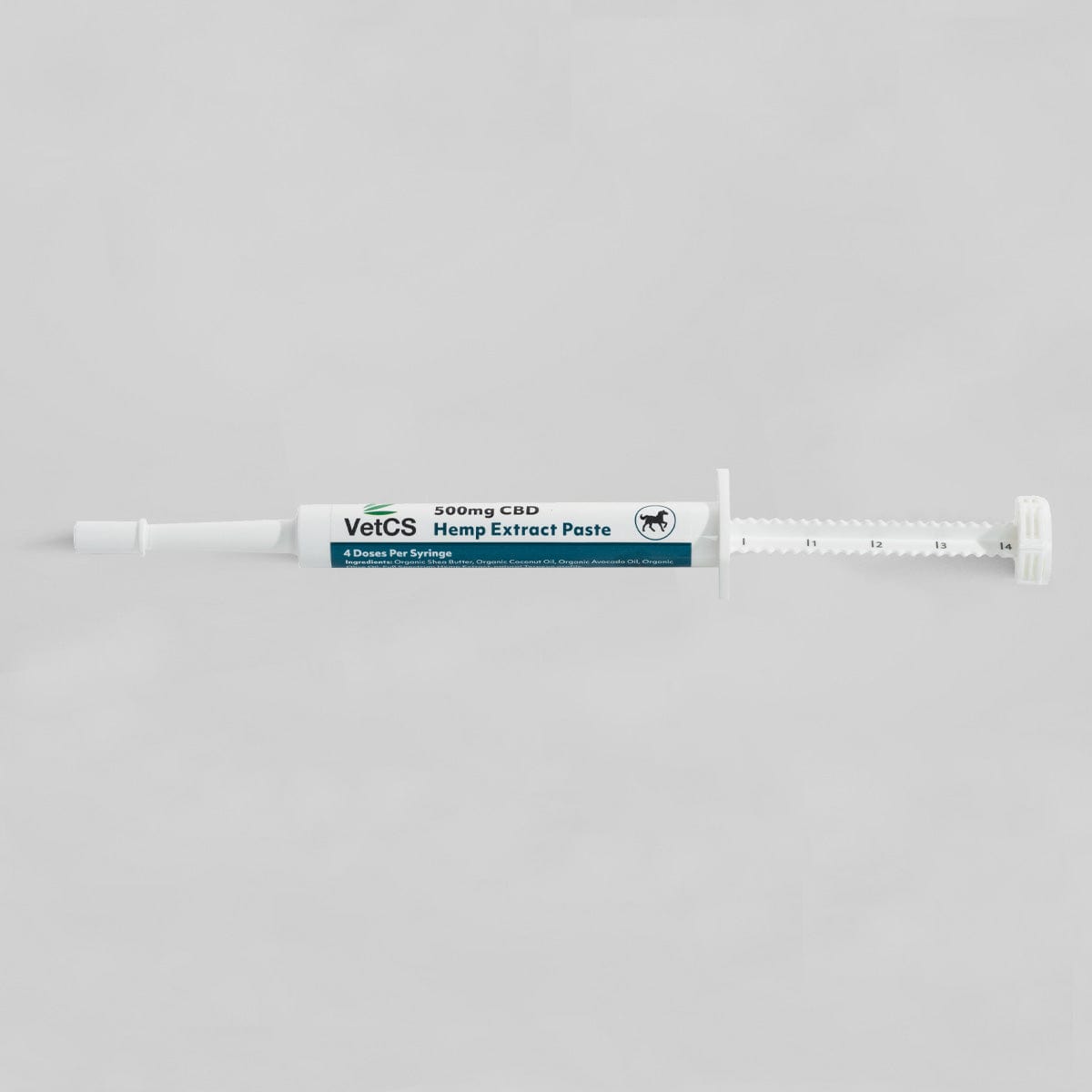
With increasing interest in holistic wellness for cats, many pet owners seek guidance on a variety of health topics, including the benefits and proper use of supplements like CBD oil. At VetCS, we are dedicated to providing a comprehensive resource for all your cat wellness questions. If you have any specific concerns or questions, our veterinary team is here to help Monday through Friday from 9 AM to 4 PM.
How much CBD oil should I give my cat?
Determining the appropriate dosage of CBD oil for a cat requires careful consideration of several factors, including the cat's weight, age, overall health, and the specific reason for using CBD. VetCS offers highly concentrated, palatable formulations for cats to be able to give a lower volume dose with a high milligram concentration. Follow the recommended dosing chart provided based on your cats weight, and contact the VetCS team with any questions.
Will CBD help my cat while traveling?
Using CBD for travel anxiety in cats can be considered as part of a comprehensive approach to managing their stress during trips. CBD may help alleviate anxiety and promote relaxation, making the travel experience more comfortable for your cat.

CBD oil for cat seizures
While research is still limited, some studies suggest that CBD may have anticonvulsant properties that could potentially help manage seizures in cats. It's important to note that CBD should never replace prescribed anticonvulsant medications without veterinary guidance. Consult your veterinarian before starting CBD treatment for your cat's seizures. They can assess your cat's condition, discuss the potential benefits and risks of CBD, and recommend an appropriate dosage and administration regimen tailored to your cat's specific needs. Regular monitoring and adjustment of the treatment plan may be necessary to ensure optimal seizure management and overall health.
Can CBD help my elderly cat?
Using CBD for senior cats is a consideration for managing various age-related issues such as arthritis, IBD, mobility problems, anxiety, and overall wellness. CBD has shown promise in veterinary medicine for its potential anti-inflammatory and analgesic properties, which can help alleviate pain and discomfort in senior cats with arthritis or joint stiffness. It may also aid in reducing anxiety and promoting relaxation, which can improve quality of life for older cats experiencing stress or cognitive decline.
How to introduce a new cat to your home/managing multiple cats
Introducing a new cat or managing multiple cats requires careful steps. Begin by isolating the new cat in a separate room with essentials like food and a litter box. Exchange bedding to familiarize scents, then allow supervised interactions. Use treats for positive reinforcement and monitor for signs of stress or aggression. Calming supplements like VetCS CBD oil can help reduce anxiety levels. Provide separate resources and vertical spaces for each cat. Patience is crucial as the process can take time. Consult your vet for guidance if issues persist.
How often should cats go to the vet?
Regular veterinary check-ups are vital for your cat's health. Healthy adults should see the vet annually for exams, vaccinations, and preventive care. Senior cats or those with chronic conditions may need visits every 6 months. Kittens require frequent visits in their first year. Prompt vet visits are crucial for any behavior changes or health concerns. These check-ups ensure early detection and treatment, promoting a healthier life. Follow your vet's guidance for scheduling and addressing your cat's needs.
Cat dental care tips
Cat dental care is important for their overall health. Regular brushing with a pet-specific toothbrush and toothpaste can help prevent plaque and tartar buildup. Aim for daily brushing if possible, but even a few times a week can make a significant difference. Additionally, providing dental treats or toys designed to promote dental health can help reduce plaque and freshen breath. Schedule regular veterinary check-ups to monitor your cat's dental health and address any concerns early. Your veterinarian can recommend professional dental cleanings as needed to maintain optimal oral hygiene and prevent dental disease.
Vaccinations for cats
Cat vaccinations are crucial for preventing infectious diseases that can be harmful or fatal to cats. Core vaccinations, such as those for rabies and feline distemper (panleukopenia), are recommended for all cats regardless of lifestyle. Non-core vaccinations, such as those for feline leukemia virus (FeLV) and feline immunodeficiency virus (FIV), may be recommended based on your cat's risk factors and environment. Kittens typically receive a series of vaccinations starting at around 6-8 weeks of age, with boosters given every few weeks until they are around 16 weeks old. Adult cats require periodic booster vaccinations to maintain immunity. Consult with your veterinarian to develop a vaccination schedule tailored to your cat's individual needs and lifestyle, ensuring they receive essential protection against preventable diseases.
Tips for dealing with an aggressive cat
First, ensure your cat's health by scheduling a veterinary check-up to rule out any medical issues contributing to aggression. Create a calm environment with predictable routines and safe spaces where your cat can retreat if feeling stressed. Avoid physical punishment, which can escalate aggression, and instead use positive reinforcement techniques to reward calm behavior. Consider consulting with a veterinarian or a professional animal behaviorist who can provide tailored strategies to manage and modify your cat's aggressive behavior effectively. Patience, consistency, and understanding are key to helping your cat feel safe and reducing their aggression over time.
Common cat diseases to be on the lookout for
Common cat diseases include viral infections like feline viral rhinotracheitis (FVR) and feline calicivirus (FCV), which cause respiratory symptoms; feline leukemia virus (FeLV) and feline immunodeficiency virus (FIV), which weaken the immune system; and feline panleukopenia (FPV), a highly contagious and potentially fatal viral disease. Parasitic infections such as flea infestations, ear mites, and intestinal parasites like roundworms and tapeworms are also common. Dental disease, urinary tract issues, and obesity are prevalent health concerns in cats as well. Regular veterinary check-ups, vaccinations, parasite prevention, and maintaining a balanced diet are essential for preventing and managing these diseases, ensuring your cat's health and well-being.





